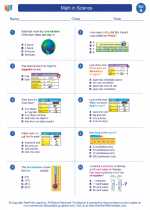What are Antibiotics?
Antibiotics are powerful medications that are used to treat bacterial infections. They work by either killing the bacteria or preventing them from multiplying. Antibiotics can be taken orally, applied topically, or administered through injections, and they are prescribed by healthcare professionals to target specific types of bacterial infections.
How do Antibiotics Work?
Antibiotics work in different ways to combat bacterial infections. Some antibiotics disrupt the cell walls of bacteria, leading to their destruction. Others interfere with the protein synthesis within the bacterial cells, while some disrupt the bacterial DNA replication process. These actions ultimately lead to the eradication of the bacteria from the body.
Types of Antibiotics
There are several classes of antibiotics, each with its own mechanism of action and spectrum of activity. These include penicillins, cephalosporins, macrolides, tetracyclines, fluoroquinolones, sulfonamides, and many others. Each class of antibiotics is effective against certain types of bacteria, and healthcare professionals choose the appropriate antibiotic based on the specific infection being treated.
Using Antibiotics Responsibly
It is important to use antibiotics responsibly to prevent the development of antibiotic resistance. This occurs when bacteria adapt and become resistant to the effects of antibiotics, making the medications less effective. To use antibiotics responsibly, it is crucial to take them exactly as prescribed, complete the full course of treatment, and never share antibiotics with others.
Study Guide
- What are antibiotics and how do they work?
- Discuss the different classes of antibiotics and their mechanisms of action.
- Explain the importance of using antibiotics responsibly.
- Research and present a case study on the development of antibiotic resistance.
◂Science Worksheets and Study Guides First Grade. Math in Science

 Worksheet/Answer key
Worksheet/Answer key
 Worksheet/Answer key
Worksheet/Answer key
 Worksheet/Answer key
Worksheet/Answer key
